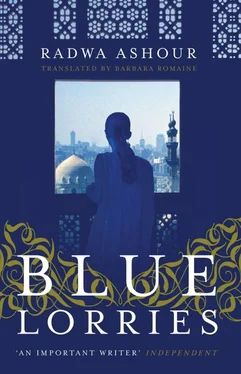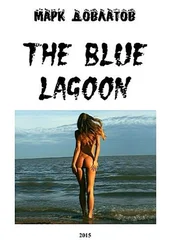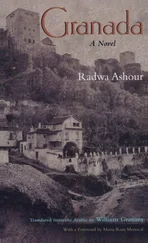In those moments of ease we played games with poetry. He would recite a line, and I would have to follow it with a line that began with the same letter with which the previous one had ended. One evening he asked me, ‘How many lines of poetry do you know by heart?’
His question took me by surprise. As a matter of pride I said confidently, ‘I know lots and lots of lines, Papa — countless lines. Give me two days and I’ll have them all for you!’ With that ‘two days’ I was trying to buy myself some time, but I managed to wangle a full week out of the deal by claiming that I had too much homework. I was in fact spending my evenings bent over my desk, but I wasn’t doing a single one of my assignments — instead I was reviewing all the poetry I had ever memorised, and learning new poems besides, which I would recite out loud to myself as I lay in bed. I would doze off in the middle of a stanza by Imru al-Qays or Al-Mutanabbi or Shawqi or Al-Jawahiri, or Al-Shabi. It seemed to me that only with my answer could I ransom my image and my father’s respect.
At breakfast a week after my father’s startling question, I proudly announced, ‘I know three hundred lines of poetry by heart, Papa — besides all the French poetry I’ve memorised, of course!’
At night we would hold our contest. ‘Ready?’ he said.
‘On one condition,’ I replied. ‘I go first!’
‘Agreed!’
In the evening I prepared his tea and sat down opposite him at the square kitchen table. I began.
‘Should the people one day yearn for life, then fate to them must yield — d .
‘Destiny with grievous losses has assailed me, until its arrows do my heart engulf — f .
‘Forbid not that which you do yourself, for in so doing lies great shame — e .
‘Each man may not achieve what he hopes for, to the will of ships do winds contrary blow — w .
‘ W … w… w… ’
‘Hazelnut, your minute’s up — you lose one point!’
‘My minute’s not up!’
‘Yes, it is. W , if you please, Lady Hazelnut:
We make ready the sword and lance, but death slays us without a fight — t .’
‘The flanks of a gazelle has he, the legs of an ostrich…’
He interrupted me before I could finish the line. ‘Choose another line — that one begins and ends with a t . It won’t do.’
‘Why won’t it do?’
‘That’s one of the rules of the game. You’re not allowed to use a line that begins and ends with the same letter. Find another line.’
But my memory refused to come up with another line that started with t .
I stalled. ‘I need to go to the toilet.’
‘Say the line and then go.’
‘Papa, I can’t — I have to go to the toilet now !’
I went to the toilet, closed the door, and tried to think of a line that started with the letter t . Then I went back to the kitchen. ‘I can’t think of a line that starts with t ! Papa, it’s not fair — I really did need to go to the toilet!’
He laughed uproariously. I joined in.
‘Two points,’ he said. Next:
‘Then he took refuge behind a rock on Radwa summit, among the soaring peaks of mountains high — h .’
I tried to remember a line that started with the letter h , but I couldn’t.
‘Three points — you’re out, Hazelnut!’ Then:
‘Heroic in magnanimity the branching limb, that bends as need requires but will not break.’
He usually won. All the same, though, I enjoyed it every time we competed, because I loved playing games with him, and I loved listening to him recite poetry — the timbre of his voice, his enunciation of the letters, his style of delivery all enchanted me. When he declaimed a line I had trouble understanding, I would say, ‘Explain,’ and he would explain, and I would take still more pleasure in the meanings of the passages as he elucidated them for me.
In the spring of 1968, when I was fourteen, my father introduced me to a woman I hated on sight. When he asked me what I thought of her, I launched straight in with my criticism of her looks, her height, her girth, the clothes she wore, her hairstyle, and the way she spoke. He tried to argue with me, to sway me by enumerating her virtues, which only increased my dislike for her. I said, ‘So why does she slather her face with loads of makeup, like some bit-player in a Farid al-Atrash film, all ready to dance in the background as soon as the music begins?
He didn’t laugh, and I was bewildered — I had assumed he would be as amused as I was by the impromptu comparison with which I had surprised even myself.
A few weeks later he started talking to me about her again. I said, ‘Who, the bit-player?’
He got angry then, and left the room. He didn’t speak of her again to me.
When examinations were over, I went to France to meet my mother in Paris, as I had promised her I would do, and to spend the summer holidays with her.
It would be the first time we saw each other since she had left Cairo nine months earlier. When she spread her arms wide to embrace me I was surprised to discover how much I had missed her, and I was the more puzzled that in Cairo I had been unaware of these feelings — of how attached to her I was and how much I needed her; it was as if I had decided all at once to fasten a belt, like in an aeroplane. Perhaps that surrender to my need for my mother was a luxury I couldn’t afford. Her departure had seemed a matter of course. I suffered under the strain of accepting that swift collapse of the status quo, although indifference was still the predominant attitude I affected in my behaviour and emotions (such emotions as I admitted to, that is).
When I saw her at the airport I was startled by the tumbling of those walls I hadn’t, to begin with, even realised I had erected and retreated behind. I held on to her for a long time, hugging her tightly, and on our way out of the airport I held her hand just the way I had used to do as a child, clinging so hard I was practically digging my nails into her palm. This time she didn’t object.
At the supper table at home, I was struck by something else. I had noticed it at the airport, but it hadn’t given me pause then, for I had been too taken up with the pleasure of seeing my mother, and too preoccupied with my own unexpected reactions and feelings. Or perhaps in that moment I had assumed it was simply that she was so moved by the sight of me after nine months of separation. Certainly I had noticed her pallor, even as I was walking toward her with my bag on the luggage trolley — I saw it from a distance, before I reached and embraced her. But now, as she sat opposite me while we had our supper, I looked at her more closely. Her face was still pale, and this wasn’t the only thing about her that was new. What else? Was it possible that old age could overtake someone who was only forty-five? And could this happen in just nine months?
‘Mama, are you ill?’ She said she was not. I asked her whether she had been ill in the preceding months. She assured me that she hadn’t.
‘Mama, your face is pale. It wasn’t like that in Cairo — even on the day you left it wasn’t this pale!’
She laughed, and changed the subject. ‘Today it’s forbidden to talk about our troubles — we’re celebrating our reunion.’
Once I was alone in bed, I didn’t sleep — I didn’t drift off even for a few minutes. I was mulling over those two unexpected developments, trying to understand. wondering and wondering — what was happening?
I started with the second thing, which in reality was foremost: my mother’s condition. What was it about her that was new? It wasn’t merely that pallor — so what was it, then? Something different about the look in her eye? (A sadness mingled with a questioning expression — or something else, too difficult for me to read?) A slowness, unlike before, in the movement of her body and her hands? She was a beautiful woman. There was in her face a sweetness arising not only from the fineness and harmony of her features, but also from the spark in the honey-coloured eyes that were the first thing about her to catch your attention. Intelligence shone from them — reminding you of nothing so much as the gleam in a mischievous child’s eye — lending a certain vividness to her face the moment she opened her mouth to speak. She had a nervous energy that ebbed and flowed, imparting to her rather petite body an animation that expressed itself in the cadences of her speech and the rapidity of her movements. Did she seem changed because her hair was a different length? She had used to keep her hair short, barely even reaching her neck, with a fringe in front. Now it had grown long, extending down her back, and she had tied it in a ponytail. With the ponytail she looked more like me, for I have the same facial features as she, although I have my father’s dark eyes and his height. But this was not the time for sorting out the question of what traits I’d inherited from whom. Was she ill? She struck me as brittle, brittle in the way of someone defeated; or, to put it another way, it was as if liveliness had given way to something softer, as if something in her (that nervous energy, or animation) had receded, or been stilled or extinguished. Was it the loneliness of living by herself in a strange country? But she was French, so how could France be a strange country? Did she find herself a foreigner there after all those years in another country? Was she worn out by her daily toil? Did she miss my father? Did she want to go back to Cairo?
Читать дальше











